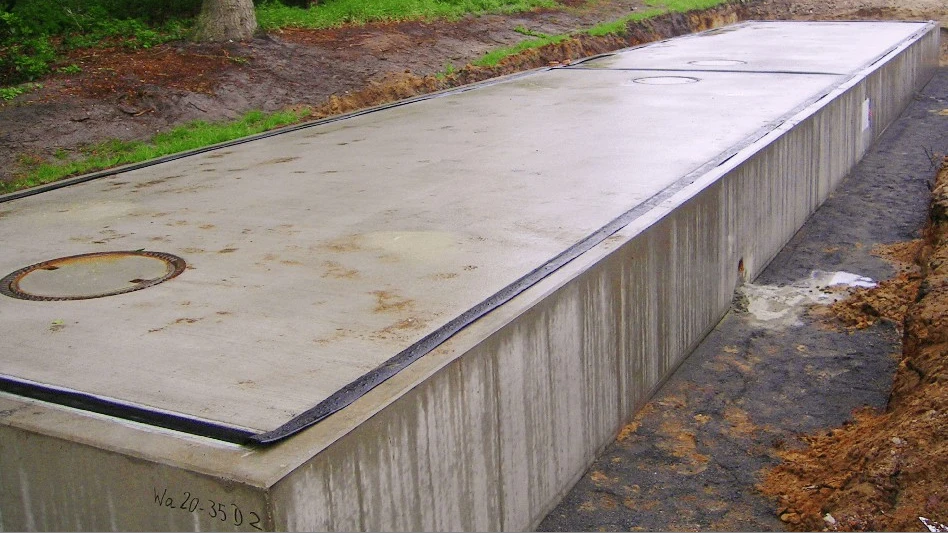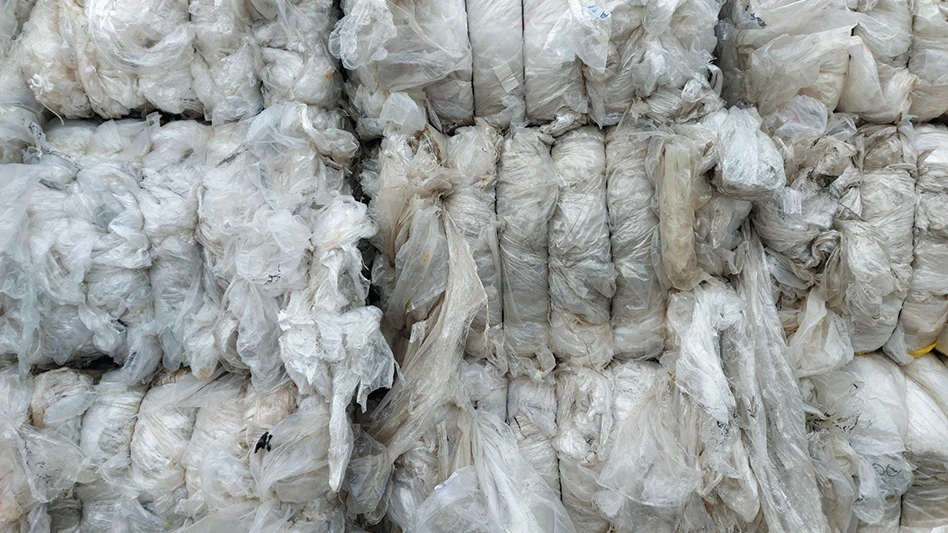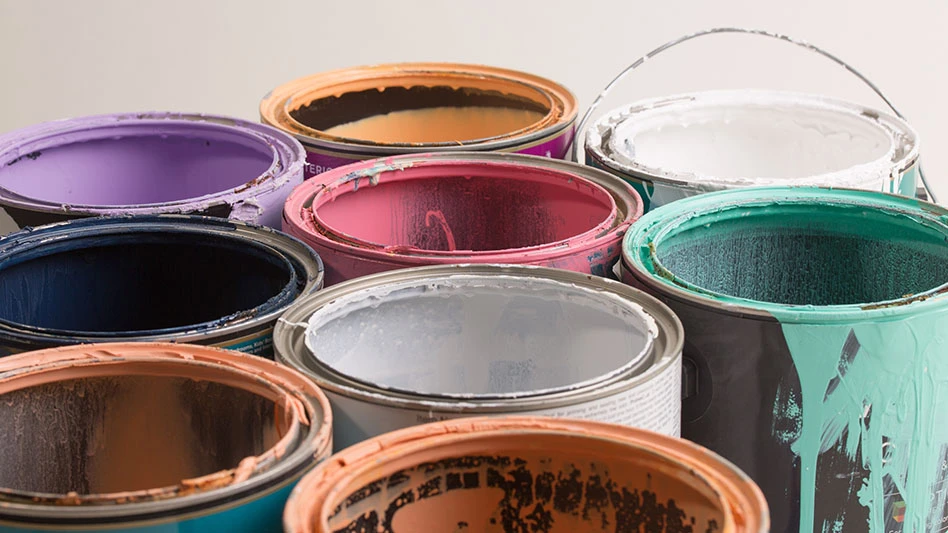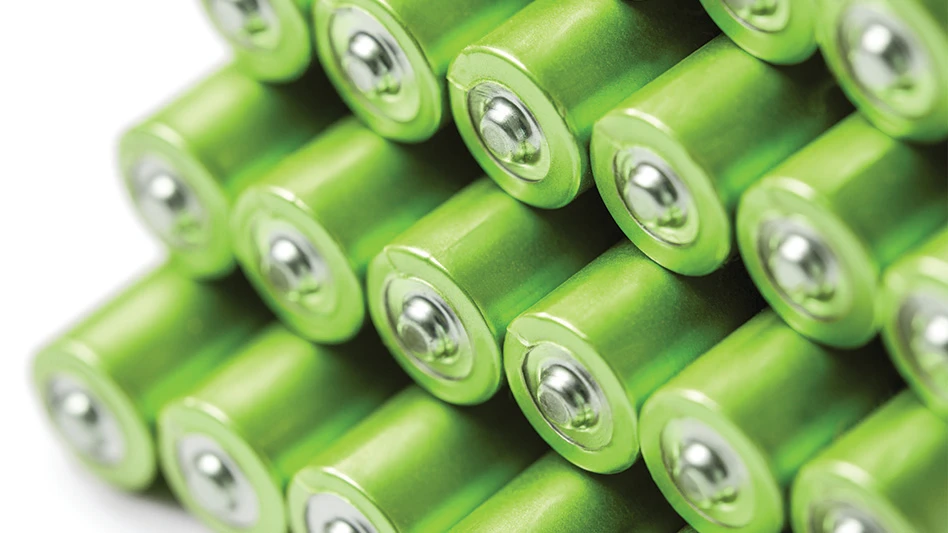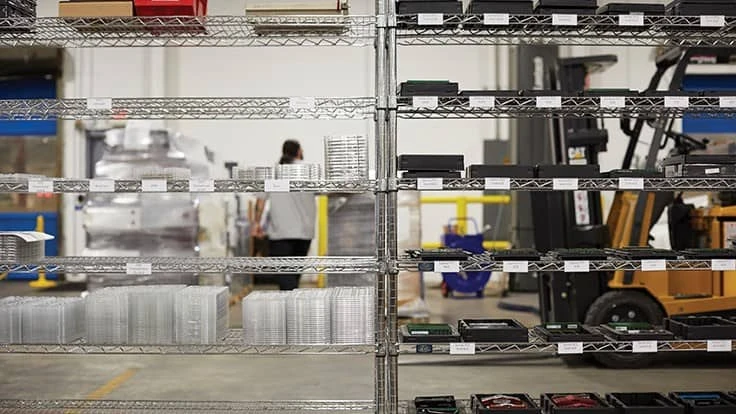
Photos by Kevin Kopanski Photography
The Season 4 premiere of “Tomorrow’s World Today” features electronics recycler and information technology asset disposition (ITAD) service provider Regency Technologies, which is headquartered in Stow, Ohio. Season 4, Episode 1, “The Science Behind Electronics Recycling,” will air on the Science Channel Saturday, July 24, and on Discovery July 25.
“Tomorrow’s World Today” is an Emmy-nominated television show that focuses on finding better ways to live more sustainable lives. The show spotlights the latest in technology and sustainability in four areas: inspiration, creation, innovation and production. Its field reporters travel the world in search of innovative pioneers who are using natural and technological resources.
Field reporter Darieth Chisolm visited Regency's Stow plant and headquarters to learn how innovation, partnerships and a commitment to sustainability have fueled Regency’s growth from a single electronics resale location into a national leader in the ITAD industry with eight locations throughout the U.S.
In the episode, Regency President Jim Levine introduces Chisolm to the company’s ITAD and electronics recycling process. Levine explains how a partnership with parent company, Reserve Management Group (RMG), which has corporate offices in Stow and in Chicago, was a major catalyst into the ITAD industry. Through the collaboration, Regency developed additional ways to maximize value by breaking down devices into their constituent recyclable commodities, such as plastic, steel and aluminum, he says.
During the show’s visit to Regency's headquarters, Levine and Chisolm spent two days touring the 500,000-plus-square-foot facility, with Levine explaining Regency’s approach to the ITAD process. Regency’s Vice President of Operations Steven Salloum, Vice President of Tech Operations Samir Khoury and Vice President of Business Development Anthony Magistrelli also are in the episode. Magistrelli displays a few of the countless types of electronics that Regency receives daily, while Khoury provides insights into the tech centers where employees test, repair and refurbish items bound for resale. Salloum walks Chisolm through the company’s recycling operations to show how Regency processes more than 1 million assets each year.
“Recycling outdated and end-of-use electronics is important in global environmental sustainability,” Levine says. “We work with large national companies and organizations that replace a lot of equipment regularly. Instead of ending up in a landfill, we take those assets and find ways to repair and remarket them or break them down into commodities to be sold and used in the manufacture of new products. Many people don’t realize that there is still value in their old electronics. We innovate and find new ways to extend the life of every IT asset to avoid landfills and bring monetary value to unused items.”
“We are continuously exploring ways to increase sustainability through scrap and recycling processes,” says RMG CEO Steve Joseph. “When we initially partnered with Regency, we were confident they would fit into our mission of providing safe, responsible and sustainable recycling solutions for our customers and the environment. Regency leads the ITAD industry with innovative processes, systems and equipment. In addition, Regency’s leadership has been an ongoing part of industry associations and coalitions to review and update sustainability and compliance standards, such as R2.”
Joseph is referring to the R2, The Sustainable Electronics Reuse & Recycling Standard, which is administered by SERI, Washington, and provides a road map of best practices that address the operational and environmental challenges in electronics recycling and repair.
Get curated news on YOUR industry.
Enter your email to receive our newsletters.
Latest from Recycling Today
- Call2Recycle Canada reports battery recycling increase in 2024
- Minnesota selects Circular Action Alliance as PRO
- GIC launches automotive plastics circularity pilot
- Hydro grows postconsumer scrap use in 2024
- BlueScope’s net profit declines
- Syklo investing in circular ‘hub’ for plastic recycling, biocomposite production
- Tomra reports profitable Q4 2024
- US ferrous scrap, DRI consumption rise in 2024
